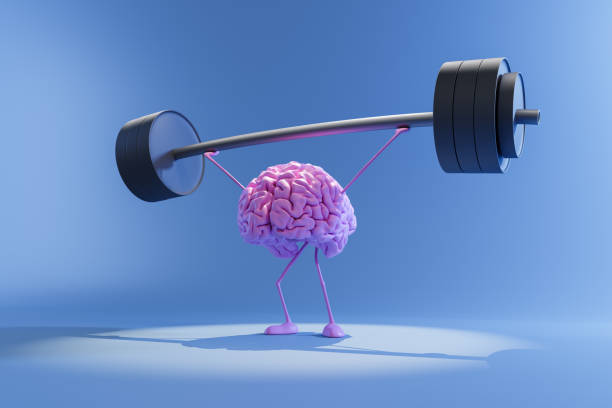Brain health is a critical part of overall health. The brain is the control center for the body, so it makes sense that keeping it healthy helps keep the entire body in good shape.
Your brain is the command center of your body. It’s responsible for everything from thinking and remembering to coordinating your muscles and senses.
However, if you don’t take care of it, your brain can become damaged or even lose its ability to function correctly.
A healthfy brain requires a healthy diet and lifestyle and proper care during illness or injury. In this article, you will find out some important health tips for the brain.
10 Health Tips For The Brain
Here are ten crucial tips to follow to ensure your brain is healthy and active.
1. Eat a balanced diet
Research has proved that the food you eat can affect your neurons which are the major cells in your brain; as such, a balanced diet is required to ensure a healthy brain.
A balanced diet includes plenty of fruits, vegetables, whole grains, lean proteins (such as fish), low-fat dairy products, legumes (beans), and nuts, as well as some oils (such as olive oil).
Also, If you want to keep your mind sharp and your memory strong, eat a variety of foods that contain lots of vitamins, minerals, and nutrients.
Vitamins C, E, and B12 help protect against Alzheimer’s disease, while vitamin D helps prevent cognitive decline in older adults.
Selenium may help prevent age-related mental decline, while omega-3 fatty acids may reduce the risk of mood disorders such as depression.
Eating plenty of fruits and vegetables will help boost your intake of these nutrients.
2. Exercise regularly
Exercise stimulates circulation in the brain and improves blood flow so oxygen and nutrients can get where they need to be more quickly.
It also helps combat stress by releasing endorphins — feel-good chemicals that improve mood — which help keep depression at bay.
Exercise builds your muscles, improves blood flow, and improves your cognitive health by sharpening your concentration and focus. This is why you should take regular exercise seriously.
3. Stay mentally fit
Stay mentally active throughout life. It’s never too late to start learning new things or improving skills you’ve already mastered — even if only for fun!
Learning new things can help strengthen connections between neurons in the brain, improving memory recall capabilities over time.
Hence, to follow this health tip for the brain, try to learn new skills or activities, pick up new hobbies, and play brain-stimulating games.
4. Get enough sleep
Get enough sleep every night. Poor sleep habits can hurt memory and learning ability, reduce focus and concentration, increase stress levels, make it harder to control emotions like anger and fear and increase the risk of depression.
Also, research has shown that sleep helps remove toxins from your brain that get built up while awake.
Therefore, ensure that you develop proper sleep habits. If you find it difficult to fall asleep, then you can find out some healthy ways to fall asleep.
5. Reduce stress
Stress can damage our bodies in many ways, including causing inflammation in the body, which causes disease.
Studies have proven that stress kills brain cells and can reduce brain size.
Also, chronic stress affects the prefrontal cortex, which is responsible for learning and memory. So avoid stress by having enough rest and relaxation.
This is why going on vacation is encouraged; it helps you relax and release stress.
6. Minimize your sugar intake
Eat less sugar and refined carbohydrates.
Sugar can trigger inflammation in the body and make people more susceptible to diseases like diabetes, cancer, and heart disease — all of which can affect your brain health too.
Refined grains such as white bread or pasta don’t provide many nutrients. Still, they contain many carbohydrates that raise blood sugar levels quickly after eating them — which can also increase inflammation over time!
7. Limit alcohol consumption
Limit alcohol consumption if you drink at all. If you’re concerned about your mental health or that of a loved one, talk with their doctor about alcohol use and its effects on the brain.
Alcohol can lead to serious problems with memory and thinking skills later in life — especially if you start drinking early (before age 21).
If you already consume too much alcohol or use drugs, get help to avoid these problems later on!
8. Quit smoking
Quit smoking, even if you only smoke occasionally. Smoking damages blood vessels and reduces blood flow to the brain, which may lead to cognitive impairment later in life.
9. Stay hydrated
Drinking plenty of water daily — not just when you’re thirsty — because drinking too little water can affect your body’s health.
For example, dehydration can lead to headaches or muscle cramps if exercise causes sweating or high temperatures.
Studies show that staying hydrated helps the brain to have enough water needed for energy to perform.
10. Practice self-care
Practicing self-care is an underrated health tip for the brain.
Self-care simply means taking the time to do things that help you live well, as well as improves both your physical health and mental health.
When it comes to your brain, self-care can help you manage stress, lowers your risk of illness, boosts brain productivity, and increases your energy.
Conclusion
Priority should be given to your brain by following the health tips for the brain. If the brain malfunctions, your whole body is in trouble medically, physically, emotionally, and socially. Ensure you report any injury to the brain quickly to the doctor. Anything that could affect your brain’s health should be avoided entirely.








